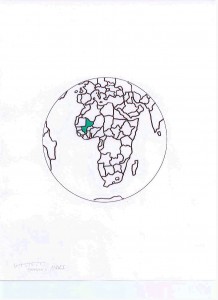MALI
A. THE COUNTRY
The Republic of Mali is a landlocked country in West Africa. Having had
a multiparty government for two decades, Mali stands as a role model of
democracy and stability among many troubled neighbouring nations.
Troubles exist around Tuarea in the country’s northeast and the Moor in
the north, Al-Qaeda, and rapidly growing drug cartels using the desert
as a transshipment point from South America into Europe. Mali is one of
the world’s poorest nations. Subsistence farming and fishing occupies
80% of the population. Exports of gold and cotton are highly vulnerable
to market fluctuations.
B. THE PEOPLE
The population is ~13,500,000 and official language French.
~89.4% are Sub-Saharan African peoples, ~10.5% Arab/Berber, ~0.1% Other
(mostly French).
C. RELIGIONS AND CHRISTIANITY/PENTECOSTALISM
Mali remains secular despite strong pressure from neighbouring countries
to become an Islamic state. Large amounts of aid from Libya and Saudi
Arabia keep the population tied to Islam. ~87.38% are Muslim, ~9.88%
Ethnoreligionist, ~2.64% claim to be Christian, ~0.1% Non-religious.
In the Christian category:
~1.92% are Catholic, ~0.7% Protestant, ~0.01% Independent.
Evangelicals represent ~0.07% of the population.
Charismatics represent ~0.02% and of those <0.1% are Pentecostals.
Donna Siemens
References:
http://en.wikipedia.org
Operation World, Jason Mandryk. Colorado Springs: Biblica Publishing, 2010.

